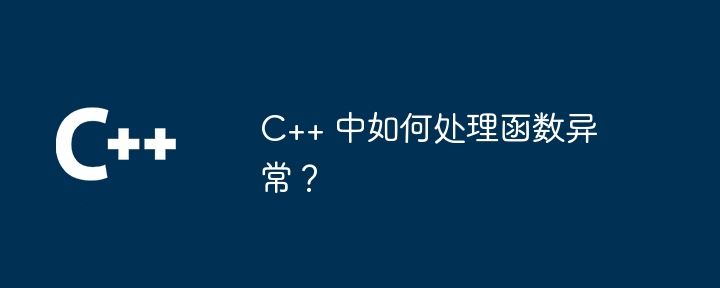例外処理は、実行時エラーを処理するための C のメカニズムです。 throw と catch で例外をスローし、try、catch、finally ブロックで処理します。具体的な構文は次のとおりです。 try { // 例外を引き起こす可能性のあるコード}catch (const std::Exception& e) { // 例外をキャッチして処理します}catch(...) { // すべての例外をキャッチします}

C で関数例外を処理する方法
例外処理は、実行時エラーを処理するための C のメカニズムです。例外をスローするには throw キーワードを使用し、例外をキャッチして処理するには try、catch、およびオプションでfinally ブロックを使用します。
構文:
try { // 可能引发异常的代码 } catch (const std::exception& e) { // 捕获并处理异常 } catch(...) { // 捕获所有异常 }
実際の例:
文字列を整数に変換する次の関数について考えてみましょう。 ##
int string_to_int(std::string str) { try { int num = std::stoi(str); return num; } catch (const std::invalid_argument& e) { std::cout << "无法将字符串转换为整数" << std::endl; return -1; } catch (const std::out_of_range& e) { std::cout << "整数超出范围" << std::endl; return -1; } }
int main() { std::string input = "123"; int num; try { num = string_to_int(input); std::cout << num << std::endl; } catch (const std::exception& e) { std::cout << "出现异常: " << e.what() << std::endl; } return 0; }
利点:
以上がC++ で関数例外を処理するにはどうすればよいですか?の詳細内容です。詳細については、PHP 中国語 Web サイトの他の関連記事を参照してください。